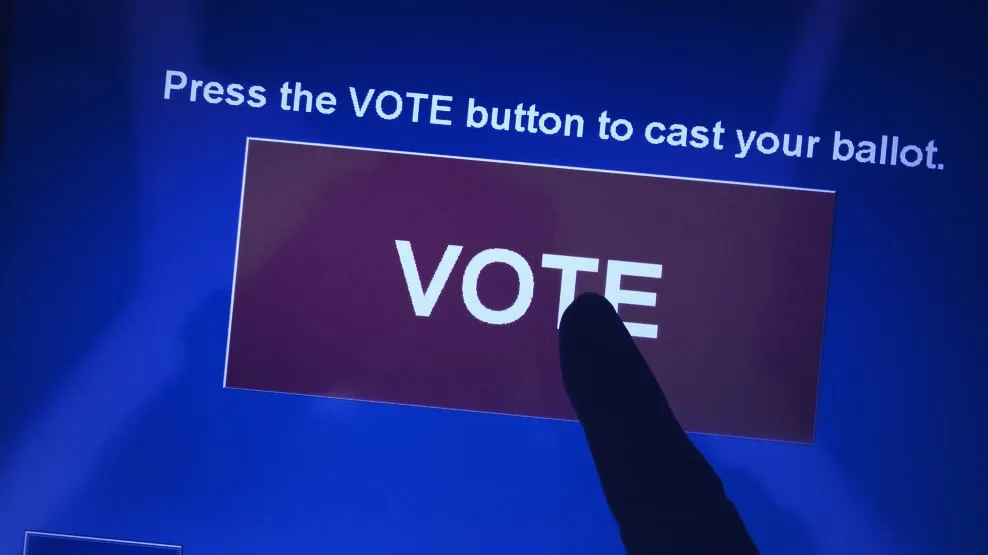In brief
- Blockchain-based voting app Voatz has recorded nearly 2,000 votes at the virtual Michigan Democratic Party Convention.
- Voatz has conducted pilots in several US states, including Arizona, Michigan, and West Virginia.
- MIT researchers blasted Voatz earlier this year, claiming the app was not secure against hacking attacks.
Blockchain-based voting platform Voatz, originally used as a pilot for overseas military voting in West Virginia, has deployed its system for another group of remote voters: Michigan Democratic Party Convention attendees.
Voatz announced today the successful completion of voting on the platform at Michigan’s virtual Democratic Party Convention held August 29 to August 30, during which delegates remotely nominated candidates for the state’s supreme court and various other positions. Nearly 2,000 delegates voted using Voatz smartphone voting platform.
It’s another proof-of-concept for blockchain-based voting, a topic increasingly making headlines as COVID-19 keeps citizens at home and mail-in voting becomes a hot button political issue.
As a precaution against COVID-19, all convention participants attended virtually from their homes. In addition to Supreme Court nominations, delegates also voted on nominations to the state’s education board and to administrative positions at state universities. Of 2,092 delegates, 91% voted using the Voatz app, while the balance voted using a helpdesk phone system.
"There were so many unique challenges with this year's convention because of the pandemic, but the Voatz platform eased many of our concerns," Michigan Democratic Party Executive Director Chrisy Jensen said.
"Voatz enabled our delegates to be verified remotely and participate through their smartphones. The convenience, safety and accessibility of voting this way was eye-opening for everyone who participated."
Voatz has helped facilitate three previous Michigan Democratic Party conventions using an in-person, tablet-based system. It also facilitated remote voting at the Arizona Republican State Convention earlier in 2020.
Voatz came into the public eye in 2018 thanks to a pilot that allowed West Virginia residents from select counties stationed overseas to vote in midterm elections using the platform. After deeming the pilot successful, state officials planned to roll out the tool for overseas residents in every county for 2020 voting. However, they changed course after MIT researchers claimed to uncover security vulnerabilities in the Voatz system.
Voatz responded to those allegations, stating that the researchers performed their analysis on an outdated version of the mobile platform and relied on assumptions about the server-side architecture of the system, which they never accessed.
Voatz also pointed out that other research teams have been given full access to source code and other components of the system. It criticized the MIT study authors for remaining anonymous prior to publication and failing to present their findings to the Voatz team to address the issues raised.
Voting on the blockchain is increasingly working its way into public consciousness, with the USPS recently proposing its own blockchain-based system for voting. The Michigan convention is another vote of confidence, albeit a small one, that immutable, decentralized ledgers may one day help ensure every voice is counted throughout the country.

